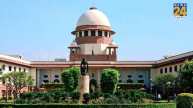The Supreme Court on Thursday stated that it is up to the executive and the legislature to decide whether people, who have benefited from quotas, should be excluded from availing further reservation or not. The apex court said that it had already expressed its views, and it was for the legislature and executive to take a call.
What Did The Bench Say?
The bench said, “We have given our view that taking into consideration the past 75 years, such persons who have already availed benefits and are in a position to compete with others, should be excluded from reservation. But it is a call to be taken by the executive and the legislature.”
The observation was made by a bench of Justices B R Gavai and Augustine George Masih on a plea referring to apex court’s judgment in August, 2024. The Supreme Court’s August 1, 2024 ruling by a 7-judge bench held that Scheduled Castes (SCs) can be sub-classified based on identifiable and measurable data for reservation purposes.
What Did The Ruling Of 2024 Say?
By a majority of 6:1, the bench had overruled the 2004 judgment of a five-judge Constitution bench in case of ‘E V Chinnaiah vs State of Andhra Pradesh.’
The judgment had stated that SCs and STs are homogenous groups, meaning states could not further sub-classify them to provide a quota within a quota for the more disadvantaged and weaker castes within these groups.
Notably, in the 2024 Judgment, Justice Gavai, had asked states to devise a framework to identify and exclude creamy layer among SCs/STs from availing reservation benefits.
Justice Gavai had stated, “The state must evolve a policy for identifying the creamy layer even from SCs and STs so as to exclude them from the benefit of affirmative action. Only this and this alone can achieve the real equality enshrined under the Constitution.”
However, six months have passed of the landmark judgment and states are yet to frame a policy complying with the order.
Also Read: SEBI Exploring Use Of AI For Faster Processing Of IPOs And MFs Applications













